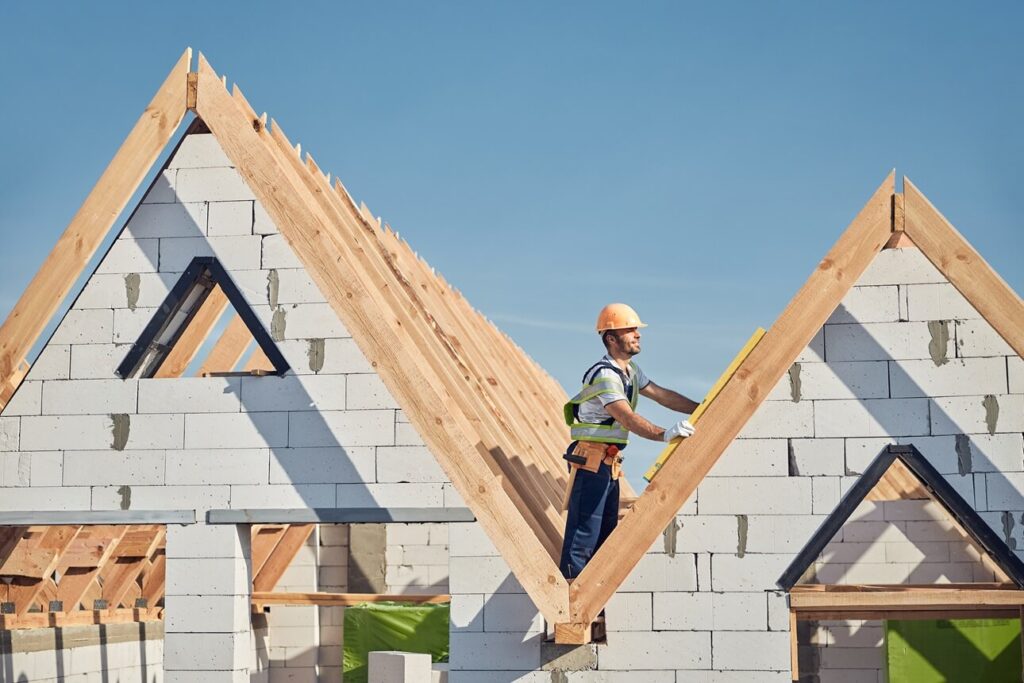
Searching for “roofing company Leander TX” typically means a homeowner or business owner is looking for guidance on roof repair, replacement, or installation. Roofing services in Leander are often triggered by aging shingles, new construction, or storm damage, especially hail and high winds that are common in Central Texas. This guide explains what services roofing companies in Leander provide, what roofing materials are available, how to choose a contractor, and how these businesses work with insurance carriers to manage claims and repairs.
Book a time
Send Us A Message
Roofing Companies Leander: What Do Local Contractors Actually Offer?
When individuals search for “roofing companies Leander,” they often want to find qualified local professionals. Roofing companies in Leander TX typically focus on residential services, though many also offer commercial roofing options. These companies operate under Texas building regulations and understand how to meet the specific requirements of homes and businesses in Leander’s climate and zoning laws.
Standard services from a Leander roofing company include:
- Roof inspections
- Roof repairs due to leaks or wind damage
- Full roof replacements
- Material-specific roofing (shingle, tile, metal)
- Gutter replacement or repair
- Assistance with roofing insurance claims
Roofing companies in Leander vary in specialization. Some focus on asphalt shingles, while others provide services in metal or clay tile systems. The best contractors also offer emergency repairs after major storms, often working directly with insurance companies to streamline the process.
How Roofing Companies in Leander Work with Insurance
Many homeowners first call a roofer after a storm causes damage to shingles, flashing, or the roof structure. Reputable roofing companies in Leander TX are experienced in working with property insurance providers. This is especially important in a region like Central Texas where storms can cause widespread roof damage each year.
Here’s how the process usually works:
- Inspection and Documentation: The roofing company inspects the roof and documents any visible damage using photos, notes, and inspection reports.
- Insurance Claim Support: Most reputable contractors will help the homeowner file an insurance claim. They may meet the insurance adjuster on-site to advocate for necessary repairs.
- Scope of Work: Once the insurance provider approves the claim, the roofer reviews the insurer’s estimate and ensures it covers all repair needs.
- Completion and Billing: The roofing company performs the repairs or replacement as agreed. They often coordinate billing directly with the insurance carrier to simplify the process for the homeowner.
This insurance support is not automatic; not all roofing companies offer it. Therefore, residents should ask about this service in advance. It’s also important to verify that the roofer has experience handling claims with major insurers like State Farm, Allstate, or USAA.
Commercial Roofing Leander – Flat Roofs and Business Roofing Services
The term “commercial roofing Leander” refers to roofing services designed for offices, warehouses, schools, and other non-residential structures. Commercial roofing requires different materials, techniques, and compliance standards than residential roofing.
Typical commercial roofing systems include:
- TPO Roofing (Thermoplastic Polyolefin)
- Modified Bitumen
- EPDM Roofing (Rubber Membrane)
- Flat Roof Coatings (Acrylic, Silicone)
Commercial roofing companies in Leander must handle large surface areas, drainage challenges, and heat management, especially on flat or low-slope roofs. Business owners should only hire contractors who specialize in these systems and can demonstrate prior commercial work.
Residential Roofing Leander – What Homeowners Should Know
The majority of roofing work in Leander involves residential homes. If someone is searching “residential roofing Leander,” they are likely looking for services such as roof repair, leak detection, storm damage assessments, or full roof replacement.
Key elements of residential roofing include:
- Sloped Roofing Systems: Asphalt shingles are most common, but tile and metal are used in custom homes.
- Ventilation Requirements: Roofs must have proper ventilation to prevent moisture buildup in attics.
- Storm Readiness: Impact-resistant materials are often recommended to handle hail and windstorms.
- HOA Compliance: Some neighborhoods have specific material and color requirements that contractors must follow.
A good residential roofing contractor will offer clear guidance on materials, timelines, warranties, and insurance documentation.

